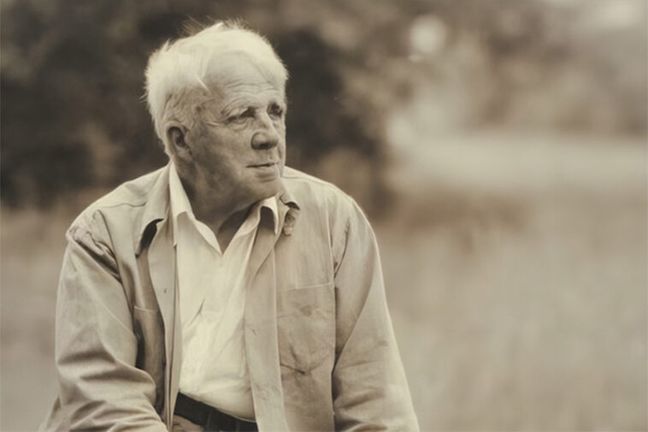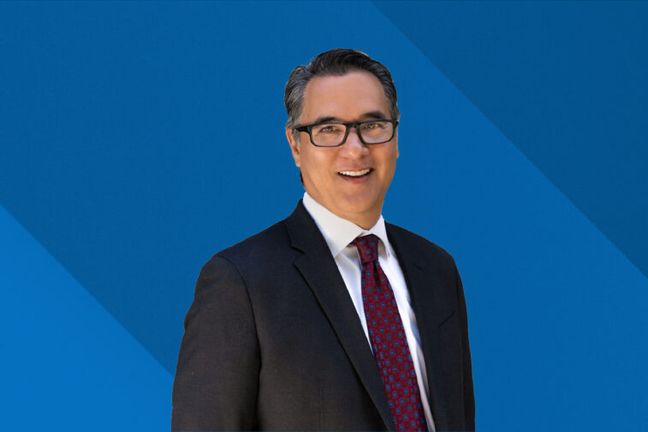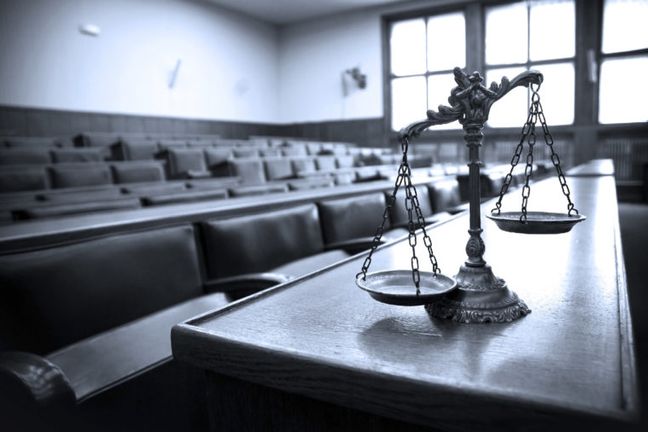Suzanne Harvey v. GEICO General Insurance Company, 43 Fla. L. Weekly S375a
The critical inquiry in a bad faith claim is whether the insurer diligently, and with the same haste and precision as if it were in the insured’s shoes, worked on the insured’s behalf to avoid an excess judgment. In a 4-3 decision, Florida’s Supreme Court reversed an Appellate Court’s “misapplication” of Florida’s bad faith precedent, concluding the court below erred in holding the evidence was insufficient to show the insurer acted in bad faith in failing to settle the insured’s claim.
Suzanne Harvey v. GEICO General Insurance Company, provides a perfect opportunity to reflect on Florida’s Bad Faith jurisprudence, and the Florida Supreme Court’s interpretation of what actions, or in actions, by an insurer can be considered sufficient for a bad faith claim.
Bad Faith Law
The Florida Supreme Court has explained bad faith law was designed to protect insureds who have paid their premiums and who have fulfilled their contractual obligations by cooperating fully with the insurer in the resolution of claims. Berges v. Infinity Insurance Co., 896 So. 2d 665 (Fla. 2004). Thus, bad faith jurisprudence merely holds insurers accountable for failing to fulfill their obligations. Id at 683.
The Court explained the law of bad faith and the good faith duty insurers owe to their insured in handling their claims, advising, “in handling the defense of claims against its insured,” the insurer” has a duty to use the same degree of care and diligence as a person of ordinary care and prudence should exercise in the management of his own business. Boston Old Colony Insurance Co. v. Gutierrez, 386 So. 2d 786 (Fla. 1980). This duty arises because the insured “has surrendered to the insurer all control over the handling of the claim, including all decision with regard to litigation and settlement, then the insurer must assume a duty to exercise such control and make such decisions in good faith and with due regard for the interests of the insured. Id. This duty requires of insurers the obligation to advise the insured of settlement opportunities, advise as to the probable outcome of the litigation, to warn of the possibility of an excess judgment, and to advise the insured of any steps he might take to avoid same. The insurer must investigate the facts, give fair consideration to a settlement offer that is not unreasonable under the facts, and settle, if possible, where a reasonably prudent person, faced with the prospect of paying the total recovery, would do so.
Because the duty of good faith involves diligence and care in the investigation and evaluation of the claim against the insured, negligence is relevant to the question of good faith. Id. (citations omitted). The duty owed by insurers to their insureds is that of a fiduciary, to act in the insured’s best interests. Berges, 896 So. 2d at 677.
Facts of Harvey
On August 8, 2006, James Harvey, the insured, was involved in car accident with John Potts. Mr. Potts died from his injuries and left behind a wife and three children. The insured’s vehicle was registered in his name and his business’s name and was covered under a $100,000 liability policy. The accident was reported to the insured’s insurer, GEICO. Two days after the accident, GEICO determined liability was adverse to the insured, and GEICO was aware there was significant financial exposure to the insured due to Mr. Pott’s passing and leaving multiple survivors, and the insured only having $100,000 in coverage. On August 11, GEICO sent a letter to the insured explaining Mr. Pott’s claim could exceed his policy limits and he had the right to hire his own attorney.
On August 14, Mr. Potts’ estate’s representative contacted GEICO and requested a statement from the insured advising it was necessary to determine the extent of his assets, whether he had any additional insurance, and whether he was in the course and scope of his employment at the time of the accident. GEICO did not immediately communicate this request to the insured, and GEICO denied the request. On August 17, GEICO tendered the full amount of the policy limits to the estate’s attorney, along with a release and affidavit of coverage. Counsel for the estate wrote a letter to GEICO acknowledging receipt of the check and GEICO’s refusal to make the insured available for a statement. On August 31, GEICO faxed that letter to the insured, who learned for the first time that a statement had been requested. That same day GEICO contacted counsel for the estate regarding the requested statement during which time counsel for the estate restated the reasoning for the need to take the insured statement and GEICO was unable to confirm the insured’s availability for a statement.
The next day the insured contacted GEICO to discuss the Estate counsel’s letter, and the insured told GEICO he did not want the Estate’s counsel to think they were not acting fast enough and asked what could be done to let counsel know they were working on it. GEICO did not relay the insured’s message to counsel for the Estate.
On September 12, 2006, the estate returned GEICO’s check and filed a wrongful death suit against the insured. The wrongful death action was tried before a jury, who found the insured 100% at fault and awarded the estate $8.47 million in damages. A judgment in favor of the estate was entered against the insured for the full amount of damages.
The insured thereafter filed a bad faith claim against GEICO based on the judgment that exceeded his $100,000 policy limits. At trial, the estate’s counsel testified he never received any communication from GEICO after August 31st and testified had he known the insured’s only other asset was a business account worth $85,000 he would not have filed suit and would have advised the estate the accept the policy limits. GEICOs insurance adjuster who worked the file conceded that the estate’s counsel’s requests for information were reasonable, GEICO’s expert testified the counsel would have needed that information to properly advise the estate, and the decedent’s wife testified if her attorney had recommended to settle, she would have done so and accepted the policy limits offered by GEICO. At the close of the insured case, GEICO moved for a direct verdict, which the trial court denied. In a special verdict, the jury found GEICO acted in bad faith and the trial court entered judgement in favor of the insure din the amount of $9.2 million.
GEICO then appealed arguing the insured “offered insufficient evidence at trial to support his bad faith claim. Florida’s Fourth District Court of Appeals agreed with GEICO and reversed, concluding that “the evidence was insufficient as a matter of law to show GEICO acted in bad faith” in failing to settle the claim against the insured. The Fourth District acknowledged GEICO could have perhaps improved its claims process, and acted more efficiently in handling the insureds claim, but not that it acted in bad faith. The Fourth District noted with significance that GEICO tendered the policy limits, unconditionally, nine days after the accident, and concluded that “even if the insurer’s conduct were deficient, the insurer’s action did not cause the excess judgment rendered against the insured.”
The Majority’s Reasoning and Analysis
The majority reviewed the totality of the circumstances in this case and concluded there was competent substantial evidence to support the jury’s finding that GEICO acted in bad faith in failing to settle the estate’s claim against the insured. The court here recognized past precedent in Florida which noted in a case where liability is clear, and injuries so serious that a judgment in excess of the policy limits is likely, an insurer has an affirmative duty to initiate settlement negotiations, and in such a case, where the financial exposure is a ticking financial time bomb, and suit can be filed at any time, any delay in making an offer under the circumstances of the case even where there was no assurance that the claim could be settled could be viewed by a fact finder as evidence of bad faith.
Here GEICOs independent investigation of the facts revealed, within days after the accident, this was a case of clear liability and substantial damages, and a jury verdict could exceed the insureds $100,000 policy limit. GEICO knew the insured was at fault, but also knew the Mr. Potts, the decent was a husband and father of three. The Supreme Court noted this was a case of catastrophic damages. The majority opined the evidence revealed GEICO failed to act as if the financial exposure to the insured was “a ticking financial time bomb” and further opined GEICO “completely dropped the ball and failed to fulfill its obligation to the insured” to use the same degree of care and diligence as a person of ordinary care and prudence should exercise in the management of his own business.
In summarizing the GEICO claims adjuster’s performance, the majority wrote: the adjuster was a considerable impediment to both the insured and the estate, and commented the adjuster’s failures to advise the estate that the insured intended to provide a statement cannot be overstated. Lastly, the Florida Supreme court suggested there can be no doubt that had GEICO been faced with paying the entirely foreseeable multi-million-dollar judgment returned by the jury in this case, it would have done everything possible to comply with the estate’s reasonable demands.
The majority criticized the Fourth District for treating an insurer’s obligations to an insured as a checklist, finding the Fourth District’s conclusion that GEICO fulfilled every obligation owed as satisfactory mistaken when GEICO did not demonstrate the same degree of care and diligence as an ordinary person of care and prudence should exercise in the management of his own business. The majority also criticized the significance the Fourth District placed on the fact that GEICO tendered the policy limits, stating there is nothing in bad faith precedent which suggests an insurer’s obligations end by tendering the policy limits.
The majority also found the Fourth District misapplied the Court’s precedent and misstated the law when it said an insurer cannot be liable for bad faith “where the insured’s own actions or inactions result, at least in part, in an excess judgment.” The majority reasoned the Fourth’s statement was fundamentally inconsistent with the Court’s precedent which could not be clearer in stating that the focus in a bad faith case is not on the actions of the claimant but rather on those of the insurer in fulfilling its obligations to the insured. While there must be a causal connection between the damages claimed and the insurer’s bad faith, the Court has never held or even suggested an insured’s actions could let an insurer off the hook when the evidence clearly establishes the insurer acted in in bad faith in handling the claim.
The majority recognized in taking the Fourth’s argument to its logical conclusion an insurer could be absolved of bad faith so long as it put forth evidence that the insured acted imperfectly during the claims process, and this could essentially create a contributory negligence defense for insurers in bad faith cases where concurring and intervening causes are not at issue. The majority noted it declined to create such a defense.
Two separate dissenting opinions were filed, both questioned the Court’s jurisdiction over the matter, and one disagreed with the majority’s reasoning and analysis related to the sufficiency of the evidence of bad faith. Nevertheless, the majority’s opinion and the reasoning behind it, is the newest addition to Florida’s bad faith jurisprudence and should act as notice and a reminder to insurers of the high standard of duty owed to insureds and the factors which future courts and finders of fact will consider when reviewing a question of an insurer’s potential bad faith.


 Author: Haldon Greenburg
Author: Haldon Greenburg
 Audish v. Macias Builds Upon the Foundation Started in Howell v. Hamilton Meats & Provision, Inc. By Affirming the Admissibility of Medicare...
Audish v. Macias Builds Upon the Foundation Started in Howell v. Hamilton Meats & Provision, Inc. By Affirming the Admissibility of Medicare...
 My New Year’s Resolutions at Work
My New Year’s Resolutions at Work
 Barking Up the Wrong Policy
Barking Up the Wrong Policy
 California Civil Procedure Code Section 998 – a Means to An End
California Civil Procedure Code Section 998 – a Means to An End
 May or Must: California and the Ninth Circuit Applies Grammar Rules for FMLA
May or Must: California and the Ninth Circuit Applies Grammar Rules for FMLA
 Par For the Course
Par For the Course
 Shining Light on Phantom Medical Bills–Lessons from Washington on Using Federal Hospital Price Transparency Rules to...
Shining Light on Phantom Medical Bills–Lessons from Washington on Using Federal Hospital Price Transparency Rules to...
 When Roads Diverge in the Wood: the Power of Risk in Building a Fulfilling Career and Stopping Nuclear Verdicts®
When Roads Diverge in the Wood: the Power of Risk in Building a Fulfilling Career and Stopping Nuclear Verdicts®
 Ask Atty: Scott Ruksakiati
Ask Atty: Scott Ruksakiati
 Florida: Judicial Hellhole No More?
Florida: Judicial Hellhole No More?
 Florida Supreme Court Confirms Collateral Source Rule For Defendants
Florida Supreme Court Confirms Collateral Source Rule For Defendants
 Florida Case Law Update
Florida Case Law Update
 Florida Case Law Update
Florida Case Law Update
 Meet the New Law. Same as the Old Law. Florida Reverts Back to the Daubert Standard for Expert Evidence
Meet the New Law. Same as the Old Law. Florida Reverts Back to the Daubert Standard for Expert Evidence
 Florida Case Law Update
Florida Case Law Update
 Florida Case Law Update
Florida Case Law Update
 Recent Florida Fourth DCA Opinions Highlight Importance of Specific Provisions in Agreements to Arbitration
Recent Florida Fourth DCA Opinions Highlight Importance of Specific Provisions in Agreements to Arbitration